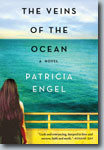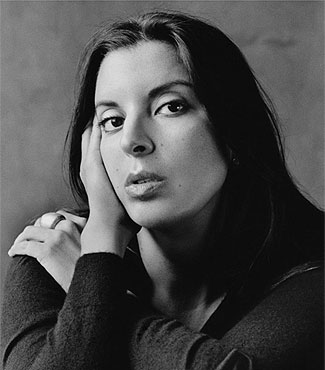

The Veins of the Ocean
Reina Castillo, the Colombian-American heroine of Patricia Engel’┐Įs richly resonant novel, is born to a prison family:
Her father is sentenced to life in prison and, in a recapitulation of his crime that itself bespeaks the hold of the
old world, her brother ends up there, too. Reina’┐Įs young life is enmeshed with her brother’┐Įs life in particular; and
what’┐Įs more, his imprisonment proves synecdochic. Even when it ends and she sets out to live a new life, Reina finds
herself behind psychic bars. ’┐ĮI thought I could shake these shadows when I moved away,’┐Į she says, ’┐Įskin my old life
from this new one as swiftly and bloodlessly as the fisherman at the marina did when gutting our fish for dinner.’┐Į
But her inheritance, replete with its ties of family and guilt and shame and loyalty, is not easily shucked off.
Can those ties be broken? And more importantly, can they be replaced? All too often, the immigrant’┐Įs journey is portrayed
as a simple move from old to new, from dark to light, from imprisonment to liberation ’┐Į a crossing of borders. In Engel’┐Įs
perceptive portrayal, the journey forward involves immersion in the old world and the natural world; and psychic progress
involves as much knitting as shedding. It involves partnership; it is not a journey accomplished alone. And, of course,
it involves courage and serendipity. The Veins of the Ocean is a wise exploration, not of immigration as a political
issue, but of immigration as a species of human change. It declines to flatten and simplify; it declines to sensationalize.
Instead, it tells the story of one young woman groping her way, not toward Freedom capital F, but toward a private
freedom that, even in the land of the free, cannot be granted, only earned.
’┐Į Gish Jen
2017 finalist judge

|
|
 |

2017 Fiction Winner


(Click photo to see acceptance speech at awards dinner.)
Patricia Engel
The Veins of the Ocean
’┐ĮLiterature can show us what is best in mankind and cast an unforgiving light on the ways we
fail ourselves and one another. That an award should recognize the power of the written
word to foster human understanding and eradicate imposed and imagined borders in the world
community is remarkably brave, and reminds us that as artists we are called through our work,
above all things, to the pursuit of peace. I am deeply grateful and honored that my novel
has been recognized in this way.’┐Į
’┐Į Patricia Engel
Patricia Engel’┐Įs most recent novel, The Veins of the Ocean, was published in May 2016 by Grove Press and named a
New York Times Editors’┐Į Choice and a Best Book of the Year by the San Francisco Chronicle, Electric Literature,
and Entropy.
Vida, her debut, was a New York Times Notable Book of the Year, winner of the Premio Biblioteca de Narrativa Colombiana,
a Florida Book Award, International Latino Book Award, and Independent Publisher Book Award, and a finalist for the PEN/Hemingway
Fiction Award, New York Public Library Young Lions Fiction Award, and Paterson Fiction Award. Additionally, Vida was long-listed
for The Story Prize, named a Barnes & Noble Discover Great New Writers selection, and a Best Book of the Year by NPR, Barnes & Noble,
Latina Magazine, and Los Angeles Weekly. Her novel, It’┐Įs Not Love, It’┐Įs Just Paris, was winner of the International
Latino Book Award and an Elle Reader’┐Įs Prize, and recommended by the Los Angeles Times, Time Out New York, and Flavorwire.
Patricia’┐Įs books have been translated into many languages and her short fiction has appeared in The Atlantic, A Public Space,
Boston Review, Chicago Quarterly Review, Harvard Review, ZYZZYVA, and elsewhere, and anthologized in The Best American Short
Stories 2017 and The Best American Mystery Stories 2014. Her essays and reviews have appeared in the New York Times,
Virginia Quarterly Review, Catapult, and numerous anthologies. She has received awards including the Boston Review Fiction Prize,
fellowships and residencies from the Bread Loaf Writers’┐Į Conference, Key West Literary Seminar, Hedgebrook, Ucross, the Florida Division
of Cultural Affairs, and a 2014 fellowship in literature from the National Endowment for the Arts.
Born to Colombian parents and raised in New Jersey, Patricia currently lives in Miami. She teaches creative writing at the University
of Miami and is Literary Editor of the Miami Rail.
|
|